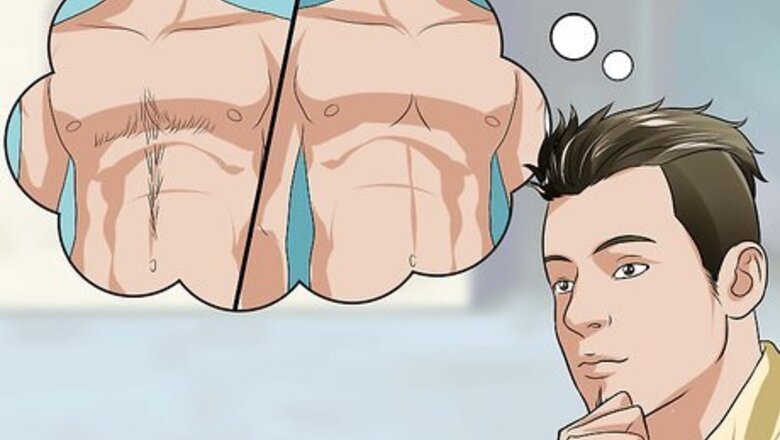
views
X
Research source
Chest hair can be easily and shamelessly removed nowadays, by razor, wax, laser or cream, so get to your grooming!
Shaving Your Chest
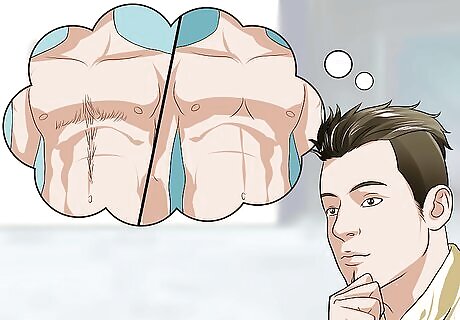
Decide on your look. Shaving is the tried and true method, but there are degrees in its severity. You can utilize a trimmer to manage (or even, dare we say, sculpt) your growth, or use a razor and take the whole of it completely off. It’s a common misconception that shaving body hair will make it grow back thicker, coarser, darker, faster, and more plentiful, but this is not the case. Shaving cuts the hair, resulting in a blunter tip for the hair (which causes it to feel coarser), but this is not permanent and has no lasting effecting on the follicle.
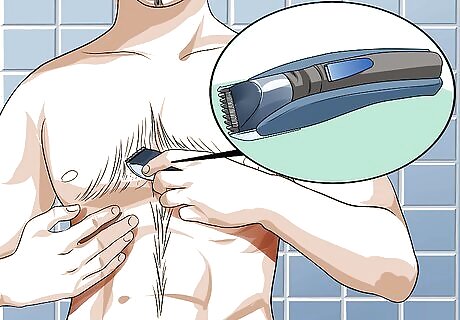
Trim electrically. Electric hair trimmers designed specifically for body hair are optimal if you just want to keep your chest hair under control. You should shower before doing any trimming, making sure to scrub your chest clean, and then try out your trimmer once you’re dry. Trimmers come with multiple guards. Don’t be afraid of starting with a longer guard (usually a higher number), then switching to increasingly shorter guards until you find the right length. Always begin shaving in the same direction as the grain of your hair, and then try running the trimmer against the grain of your hair. If irritation occurs when going against the grain, discontinue for a few days. Although not necessary, many men prefer to use aftershave or moisturizer afterward to soothe the skin. Subsequent trims will help you figure out how short you'd like to go, as you'll quickly become aware of the rate of your hair growth and how much upkeep you can handle.
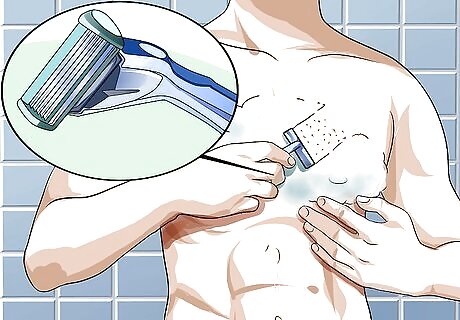
Shave it clean off with a razor. Spray shaving cream or gel onto your chest, and get to work! Take care around sensitive areas—two obvious ones being your nipples—and run your razor in the same direction that your hair grows. Apply aftershave to soothe your irritated skin, if necessary. When you opt to take it clean off, however, you're also granted the "joy" of maintaining that perfectly smooth chest. There hasn't been a study yet finding chest hair regrowth stubble to be anybody's idea of attractive, and it can be itchy and painful for you while it grows back. Aloe vera can soothe the itch, but you'll have to regularly shave to avoid unsightly stubble.
Waxing It Off
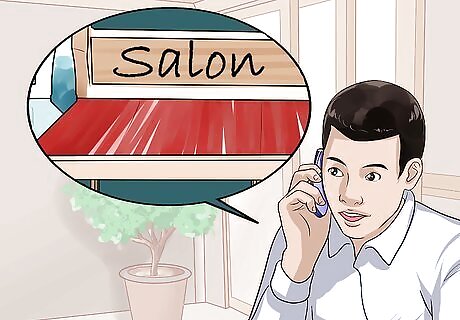
Book an appointment at a salon. For first-timers, it might be preferable to put yourself in professional hands. It’s not nearly as rare for men to wax their chests these days, so if it’s any solace, know that you’re not alone.
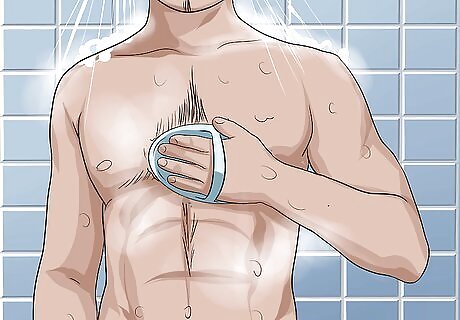
Exfoliate and moisturize in preparation. It’ll be a big bummer to go through the trouble of waxing all the hair from your chest only to have red, splotchy pecs. Taking care of your skin before it’s waxed will reduce your skin’s recovery time from the procedure, so you should exfoliate the day before.
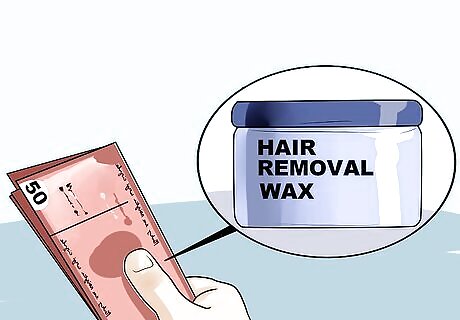
Purchase your wax. If you made an appointment, then your part in this is done (though you still have a waxing to endure). Otherwise, you’ll need to be picking up a commercial DIY waxing product. You can also get DIY to the max with it and make your own wax.
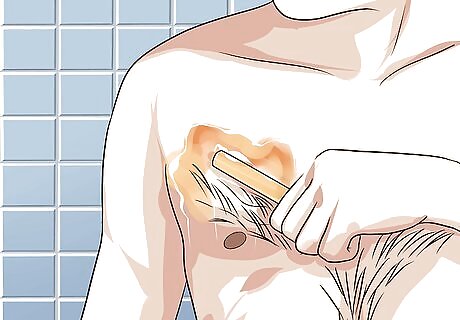
Apply the wax. After heating the wax if necessary (some do-it-yourself products are microwavable; check the instructions on yours) you’ll want to apply it to your chest hair. For best results lay it on in the direction your hair grows. Some products use all-in-one applicator strips with wax, whereas others (generally referred to as “hard” waxes) will come with a spatula-like tool for spreading it on. Your hair needs to be as close to a quarter-inch long as you can get it for the wax to grab hold. If you’re trying wax after a bungled trimming you might need to give your hair a few days to grow, and if you've got an unruly thicket on there you should use a trimmer (or scissors) to cut your chest hair in preparation. Usually, the longer the hair, the better.
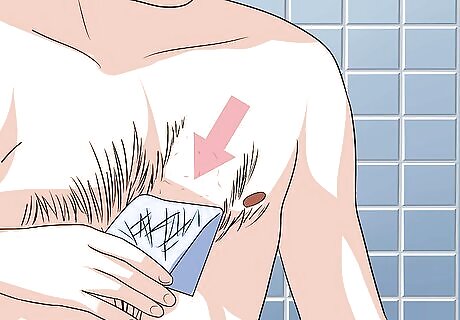
Rip the strip. This is the fun part! If you’re using all-in-one strips, the strip is already on and you can go ahead and remove it. If you’re using hard wax, you’ll want to quickly pull it off once it has hardened enough to be firm, yet still flexible. Remove it in the direction opposite to your hair growth for best results. After pulling, apply immediate pressure for pain relief. Different products will recommend different specifics, but care should generally be taken not to re-wax the same area unless specifically instructed to. Unlike shaving, waxing is removing your hair from the root. It will generally give you a longer-lasting hairlessness (3-6 weeks), but also opens the door to ingrown hairs. Avoid using soap or scented products on your chest for 24 hours after waxing, to avoid irritation.
Exploring Electrolysis
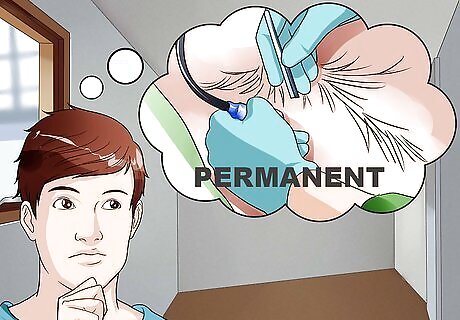
Ensure you really want that hair gone. Electrolysis is a procedure utilizing an incredibly slim needle, which essentially delivers small shocks of electricity to each individual hair follicle. This goes a step beyond waxing and not only removes hair at its root but kills the cells that grow the hair. Which is all to say: electrolysis is permanent.
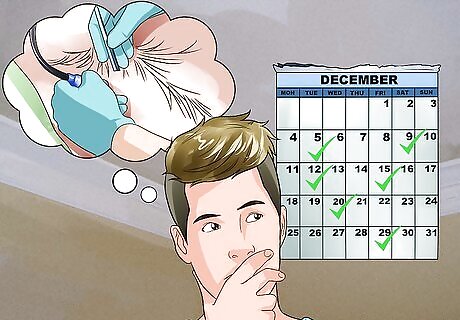
Prepare for the time commitment. Because it attacks every single hair one by one, electrolysis can be extremely time-consuming. Weekly sessions could easily stretch into a year, total, for the particularly hirsute. Luckily, the actual sessions are fairly brief, only lasting from 10-30 minutes.
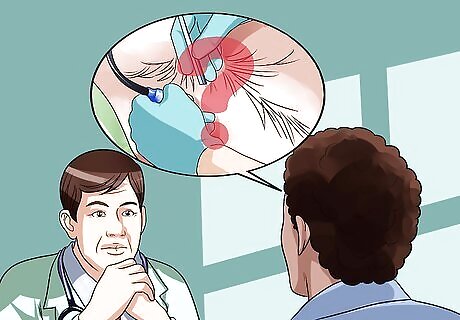
Ask your doctor for a referral. With electrolysis, you’ll need to talk with your physician for a recommendation, so it definitely requires more planning than shaving or waxing. Your doctor will be able to point you in the right direction, as well as inform you of any unique reason that electrolysis might not be suitable for you. Those who use pacemakers, for example, cannot undergo electrolysis for risk of it interfering with the device.
Trying Depilatories
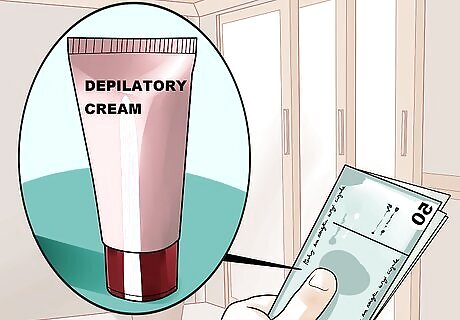
Buy the cream, lotion, gel, aerosol, or powder you’d like to try. Depilatories are available in a wide range of forms though all serve the same purpose. The chemicals break down and dissolve your hair, which you can then easily wipe off. Popular brands for men include Nair, Magic Shave, and Nad’s.
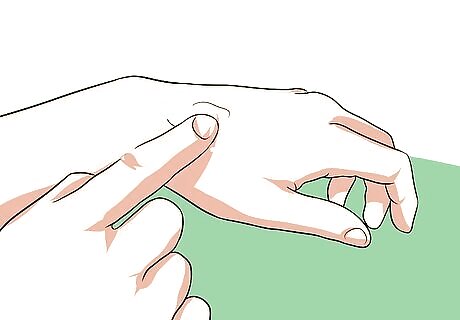
Test your skin for reactions. You could have chemical allergies you’re unaware of, so it’s always best to test new topical cosmetics in small quantities before beginning regular use. Dab a small amount on the inside of your elbow or another inconspicuous part of your body, then wash it off as you would during normal use. If you notice any redness, irritation, or swelling, discontinue use of this product. Most depilatory products are designed to remain on your skin for roughly five minutes before being removed.
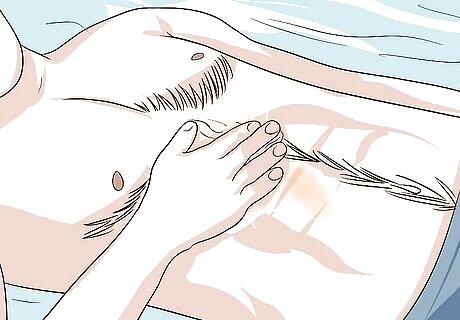
Apply the product. Whether you went with a spray, a cream, or a roll-on applicator, you should apply the depilatory—as your selected product directs—to your chest.
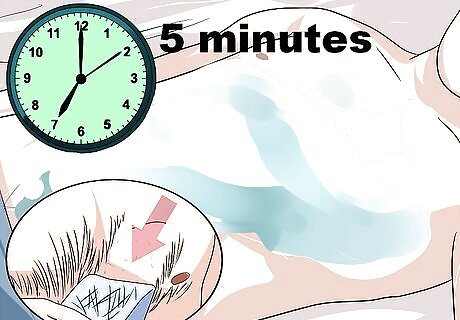
Wait, then scrape it off. There will be a short period of time during which you’ll allow your cream or spray to work its chemical processes, after which you’ll simply wipe the area clean. Your hair should come away with the cream. As mentioned above, the said period of time will often be as short five minutes; brief enough to perform in the morning before work, should you need a hairless chest for any reason at work. Many depilatory products are sold with special tools for scraping the hair and product off though any towel you’re willing to ruin can work as well.
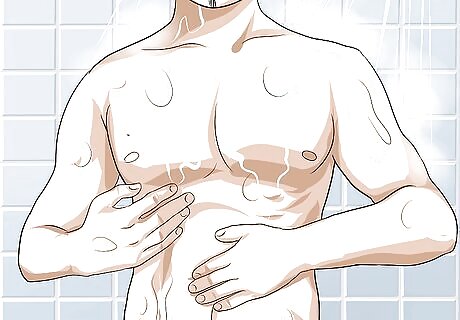
Wash up. Rinse away the remnants of your handiwork and admire the view! Good job, you. Now go and put a shirt on.











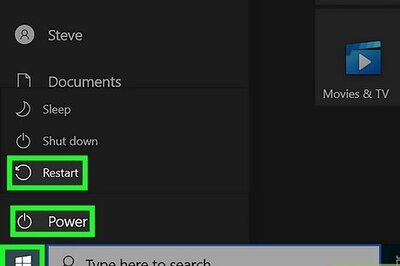

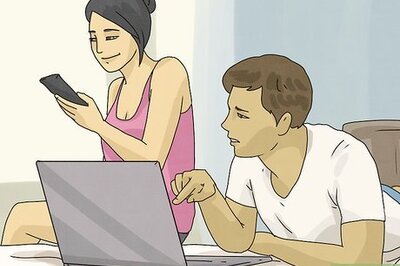






Comments
0 comment